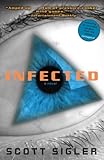I had never played paintball. Â So, when a deal popped up on Living Social a while back, a few friends and I (who had also not played paintball before) bought in. Â It took a long while, but we finally went.
In a word… meh.
I suppose I can see the draw that some people have to it. Â Being able to shoot other people isn’t something you get to do very often. Â But overall, it was fairly lackluster. Â First off, there were four of us and we mixed in with a larger group, and they put two of us on one team and two on the other. Â Frankly, I’d have had more fun with my friends being on my team since I had no desire to shoot my friends. Â Next, they lead a team to each end of a field which was dotted with forms of cover. Â They counted to three and said “Go!” Â People ran to cover and then started shooting.
The first round we played, my team won. Â I didn’t shoot anybody. Â In fact, I spent most of the time trading shots with another guy who eventually got shot by a teammate of mine. Â We had spent nearly the whole time swinging out, shooting and then ducking behind cover. Â Then, suddenly, we just sorta won.
The second round we played, my team lost. Â I got shot… kinda. Â I mean, my gun got shot. Â I didn’t even see it happen, but a ref told me I had been hit and there was paint on my gun. Â Umm… okay. Â I watched from the sidelines as a repeat of the previous game happened. Â People hiding, swinging out to shoot occasionally, and when one team was down enough players one dude ran out from the side and shot the last two players on the losing team.
The third round, I can’t tell you who won, because I don’t know. Â The full seven minutes ran out and they called it off. Â Not that it mattered. Â I got shot in the first fifteen seconds. Â By my own team. Â I ran forward to a position (we were on a different field this time, larger, more cover, a spot of trees in the center, and more people too), I was crouched over, and then felt the painful sting of being shot, right in the gap between my shirt and my pants, right on the skin. Â If I were so tattooed, I’d have been shot on the tramp stamp. Â The girl who shot me (and I know it was a girl because the only people behind me were three girls who refused to leave the original, completely out of range, bunker) was no more than ten feet away. Â That freakin’ hurt! Â Team kills count, so I was out and I walked off the field and walked off the pain.
Round four, same larger field, other side. Â We found good cover and began shooting our foes. Â Minutes went by of a pitched battle, and I think I shot someone… I don’t know, because with like thirty people on each side and so many paintballs flying around it gets hard to tell if it was me or some other shooter. Â All was going well, and then someone on the other team, who was sitting out of traditional range, switched to mortar fire. Â He couldn’t hit us firing straight, so he started arcing his shots. Â I’m going to pause here and tell you one of the rules of the field: if someone is hiding behind a low barrier, you are not allowed to come over the top and shoot them from above. Â This rule exists for two reasons, 1) shooting down on someone’s head can really hurt them, and 2) them shooting upward at your chin (and by virtue of the equipment, the gap between your face and mask enabling them to possibly hit your mouth and nose) can really get you hurt. Â So back to the mortar moron… if he’s arcing, that means that the paintballs are coming from above, you know, as if he was shooting down on us.

Yeah. Â Some people suck. Â That really hurt.
Anyway, despite how much I’ve written here, the day was basically a check mark. Â Play paintball? Â Check. Â No reason to ever do it again.
 I’m going to start the review of Scott Sigler’s
I’m going to start the review of Scott Sigler’s